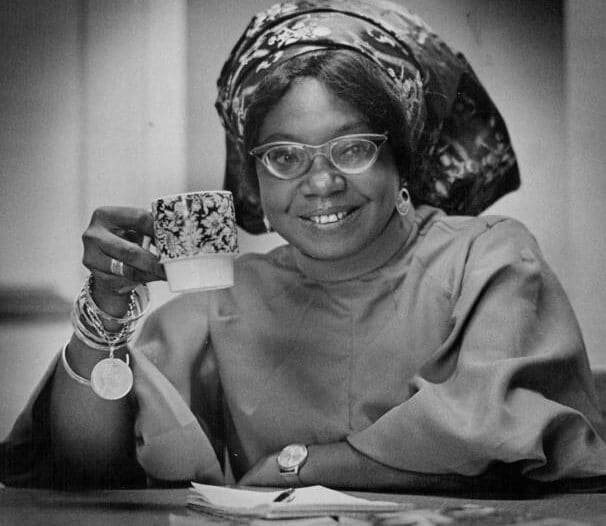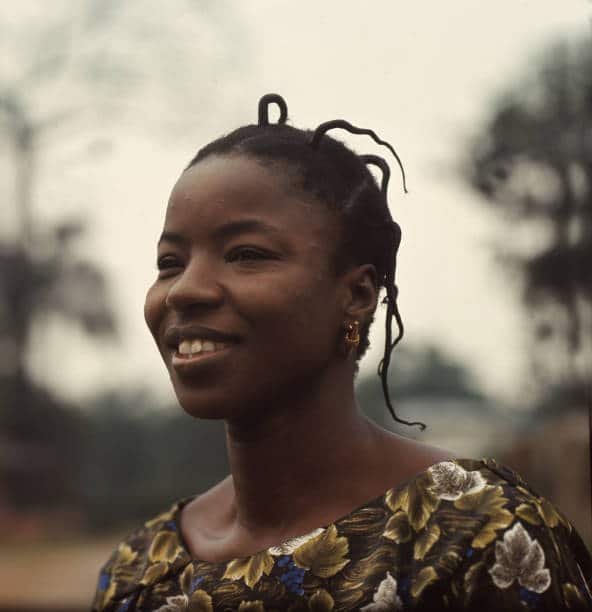
Efuru, a work by Flora Nwapa, is widely regarded as one of the most significant pieces of African literature. Published in 1966, Efuru marks a milestone in the representation of African women in literature, providing a nuanced portrayal of female life, spirituality, and societal roles within the Igbo community.
In this article, we will delve into the story of Efuru, explore its key themes, characters, and symbolism, and discuss the lasting impact of Flora Nwapa’s work in the context of African literature.
Efuru – A Pioneering Work by Flora Nwapa
When Flora Nwapa wrote Efuru, she was not just telling a story about an Igbo woman; she was charting new territory for African women in literature. Efuru became the first novel by a Nigerian woman to be published internationally, making it a groundbreaking achievement in a literary world dominated by male voices. The novel explores the complexities of womanhood, the pursuit of personal fulfillment, and the struggles women face in patriarchal societies.
The Plot of Efuru: A Journey Through Love, Loss, and Identity
The protagonist of Efuru is Efuru, a young woman who is admired for her beauty, strength, and independence. Set in the Igbo community in southeastern Nigeria, the novel follows Efuru’s life as she navigates societal expectations, personal desires, and the pain of loss.

Efuru is introduced as a beloved daughter of a wealthy man who marries a man named Adim. She faces personal challenges as her marriage falters due to infertility, a common source of shame for women in traditional Igbo culture. However, Efuru’s story is not one of despair; it’s a tale of resilience, self-discovery, and the pursuit of happiness in a world that often marginalizes women.
Throughout the novel, Efuru confronts the challenges posed by societal norms and the expectations placed on her as a woman. Despite her struggles with infertility, she remains strong, earning the respect of those around her. Her relationships, both with men and other women, reveal the complexities of gender roles in traditional African society. Through Efuru’s journey, Flora Nwapa offers readers a powerful portrayal of female strength and resilience.
Thematic Exploration of Efuru
1. The Role of Women in African Society
One of the most prominent themes in Efuru is the role of women in traditional African society. In the Igbo community, as depicted in the novel, a woman’s worth is often tied to her ability to bear children and fulfill domestic roles. Efuru’s inability to have children initially leads to tension in her marriage, reflecting the patriarchal attitudes of the time. Yet, despite this pressure, Efuru’s personal journey demonstrates that women can find fulfillment outside the traditional expectations of motherhood and domesticity.
Flora Nwapa’s portrayal of Efuru as a woman who defies these norms is revolutionary. Efuru’s independence, her success as a merchant, and her ability to maintain strong relationships with other women underscore the importance of recognizing the full humanity of women, beyond just their roles as wives and mothers.
2. Infertility and Social Stigma
Another significant theme in Efuru is infertility and its social stigma. Infertility is a major issue in the Igbo community, where women are often judged harshly for their inability to conceive. Efuru’s infertility is a source of personal pain, but it also highlights the damaging effects of these societal expectations on women. Despite facing this stigma, Efuru does not let it define her. Instead, she seeks ways to carve out her own identity and find fulfillment outside of traditional roles.
This theme resonates with many readers, as it addresses broader issues of societal judgment and the damaging impact of rigid gender norms on personal identity and self-worth.
3. Spirituality and Belief Systems
Spirituality plays a central role in Efuru, with the novel weaving elements of traditional Igbo beliefs alongside the influence of Christianity. Efuru’s relationship with the spiritual world is depicted through her interactions with the gods and her role as a worshipper. The novel explores how religion and spirituality shape individuals’ lives and guide their decisions, particularly in the context of personal hardship and loss.
Efuru’s spiritual beliefs provide her with strength and solace in times of difficulty. The novel offers a nuanced view of spirituality, showing how it serves as both a source of empowerment and a way to navigate the complexities of life.
4. The Search for Personal Fulfillment
Efuru’s journey is also one of self-discovery and the search for personal fulfillment. Throughout the novel, she grapples with her desires for love, respect, and happiness. Her struggles reflect the universal human experience of searching for meaning and purpose in a world full of external pressures and expectations.
Efuru’s quest for personal fulfillment is not just about finding happiness in relationships or material wealth but also about cultivating inner strength and resilience. Her story serves as a reminder that true fulfillment comes from within and that personal growth often requires challenging societal norms and expectations.
The Characters of Efuru: A Deep Dive
Flora Nwapa’s characters are richly developed, each contributing to the exploration of the novel’s themes. Let’s take a closer look at some of the key characters in Efuru:
1. Efuru – The Protagonist
Efuru is the heart and soul of the novel. She is portrayed as a strong, independent woman who defies the typical expectations of her society. Despite the challenges she faces, including infertility and societal judgment, Efuru remains steadfast in her pursuit of self-discovery and personal fulfillment. Her character represents the resilience and strength of African women, offering readers a powerful portrait of female empowerment.
2. Adim – Efuru’s Husband
Adim is a central figure in Efuru’s life, and his relationship with her is both complex and transformative. Initially, Adim’s love for Efuru seems to be genuine, but their relationship becomes strained due to the pressures of infertility. Adim’s role in the story highlights the challenges women face in relationships when they cannot meet societal expectations, particularly in terms of childbearing.
Despite these challenges, Adim is not portrayed as a villain. Instead, he is a character who embodies the tension between traditional values and the changing dynamics of relationships. His character reflects the complexities of love, loyalty, and societal expectations.
3. Machi – The Faithful Friend
Machi is Efuru’s closest friend and confidante, representing the importance of female solidarity and support in times of hardship. Throughout the novel, Machi provides Efuru with emotional support, offering wisdom and guidance as Efuru navigates the challenges in her life. Machi’s character underscores the value of friendship and the strength that women can find in one another.
4. The Elderly Women
In the novel, the elderly women of the community play an important role in shaping Efuru’s worldview. These women serve as symbols of tradition and wisdom, offering advice to Efuru as she faces various trials. Their influence is particularly significant in the context of Efuru’s relationship with spirituality and her understanding of womanhood.
Efuru and the Legacy of Flora Nwapa
Flora Nwapa’s Efuru was revolutionary not only because of its content but also because of its place in the history of African literature. As the first novel published by a Nigerian woman, it broke new ground in terms of representation. Prior to Nwapa’s work, African literature was dominated by male voices, such as those of Chinua Achebe, Wole Soyinka, and Ngũgĩ wa Thiong’o. However, Flora Nwapa carved out a space for women’s voices in the literary landscape.
In many ways, Efuru set the stage for the next generation of African women writers, including Chimamanda Ngozi Adichie, whose novel Half of a Yellow Sun continues the conversation about gender, identity, and societal expectations in Nigeria. It also paved the way for other prominent African female authors, including Mariama Bâ and Buchi Emecheta, to tell their own stories.
Flora Nwapa’s influence extends beyond literature; she was also a pioneering figure in the cultural and political spheres. Through her work, she became a leading advocate for women’s rights and gender equality in Nigeria, and her legacy continues to inspire generations of writers and activists.
Efuru’s Impact on African Literature
Efuru holds a special place in African literature, not just because of its historical significance but also due to the way it explores themes of identity, self-worth, and the complexities of African womanhood. The novel continues to be studied in universities, and it remains an essential part of the African literary canon.
Nwapa’s portrayal of women’s struggles, strength, and resilience has resonated with readers around the world. In many ways, Efuru is a universal story—one that transcends the boundaries of its cultural context to speak to the shared human experience of striving for identity, purpose, and fulfillment.
Conclusion
In conclusion, Efuru by Flora Nwapa is a monumental work in African literature that offers a rich exploration of themes such as the role of women in society, infertility, spirituality, and personal fulfillment. Through the character of Efuru, Nwapa provides readers with a powerful portrait of a woman who defies societal norms and pursues her own path to happiness and self-realization.
For readers interested in exploring more works of African literature, consider delving into other classic works such as Arrow of God by Chinua Achebe, The Lion and the Jewel by Wole Soyinka, No Longer at Ease by Chinua Achebe, and Half of a Yellow Sun by Chimamanda Ngozi Adichie. Each of these books provides valuable insights into the complexities of African identity, culture, and history.
By studying Efuru, we not only gain a deeper understanding of African literature but also recognize the enduring influence of Flora Nwapa as a pioneer in the literary world. Her legacy as a writer, activist, and advocate for women continues to inspire generations of readers and writers across the globe.

Leave a Reply
You must be logged in to post a comment.